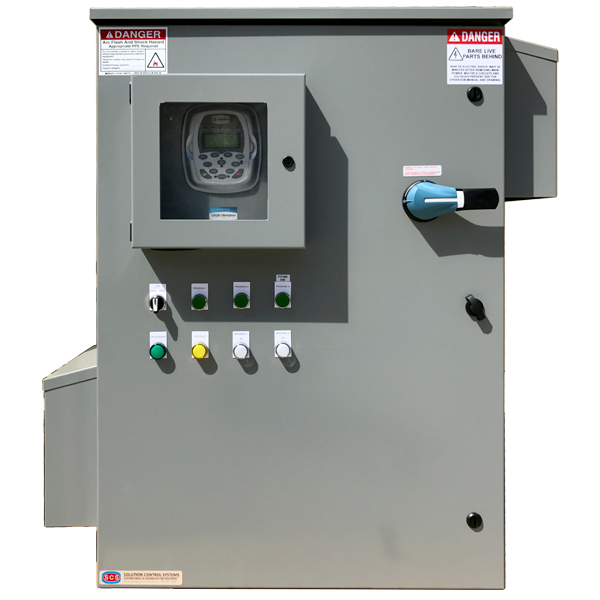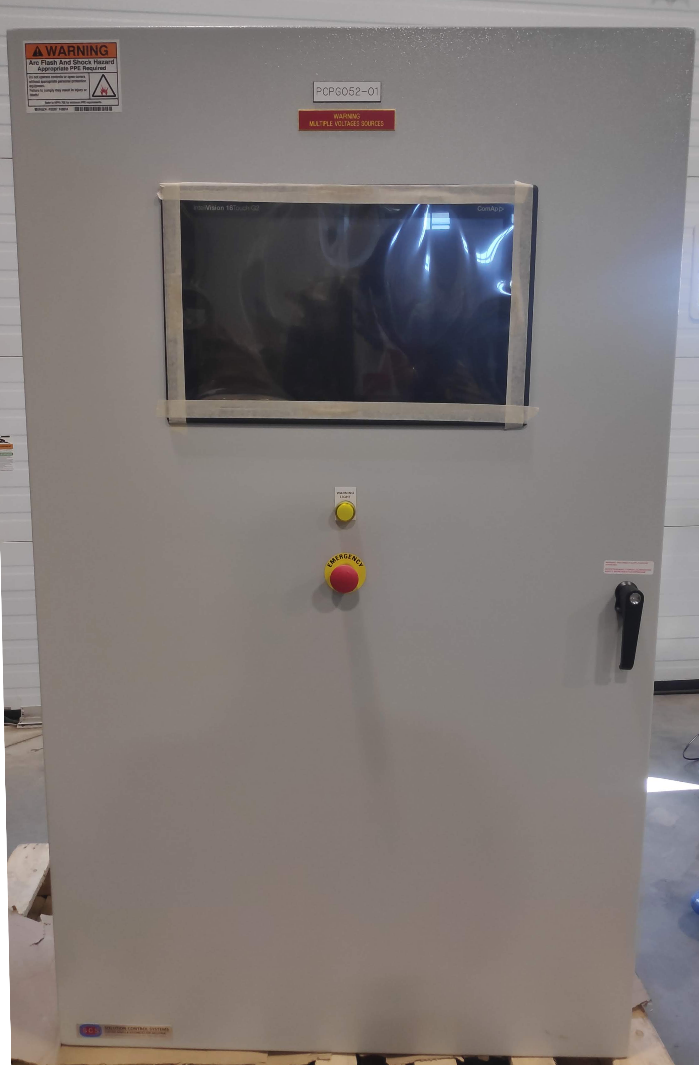A control panel is a piece of equipment that comes in a variety of layouts and styles. However, it contains certain standard components that make up its core. Without these critical parts, it’s impossible for control panels to function in a normal manner. Hence, it becomes imperative to understand these components if you are going to purchase a custom control panel or plan on designing one.
What is a Control Panel?
A control panel is an assembly of electrical devices used to monitor, control, and manage machinery or systems. It typically includes components like circuit breakers, relays, PLCs, and switches, all enclosed in a metal cabinet. Control panels are essential in industrial and commercial settings, providing centralized control for equipment, improving safety, and ensuring efficient operation.
How Control Panel Components Work Together
Control panel components work together by coordinating the flow of electricity and signals to control equipment or processes. Power devices like breakers and contactors manage electrical supply, while PLCs and relays process input signals and activate outputs. Indicators and switches allow human interaction. Together, these components ensure safe, efficient, and automated control of machinery in industrial or commercial systems.
Types of Control Panels
There are several types of control panels, each designed for specific applications. Motor Control Centers (MCCs) manage motors in industrial settings, while PLC panels automate complex processes using programmable logic controllers. VFD panels control motor speed, and HVAC panels regulate heating and cooling systems. Custom panels can be designed for unique needs, combining various components for tailored control solutions.
What Makes a Control Panel Essential?
A control panel is essential because it centralizes the management of electrical systems, ensuring safety, efficiency, and reliability. It protects equipment from overload, enables automation, and provides operators with real-time monitoring and control. In industrial environments, control panels reduce downtime, improve process accuracy, and help meet regulatory standards, making them a vital component in modern electrical and automation systems.
Primary Components of a Control Panel
1. Communication Interfaces
Control panels are designed smartly. The way they dovetail with interfaces for communicating with not only other equipment but also with the control station is remarkable.
These interfaces are possible because of a “controller”, usually Programmable Logic Controller (PLC). It takes the input of various equipment and processes their data to provide meaningful information.
Moreover, many industrial control panels also have Human Machine Interfaces (HMI) for graphically representing the information for better understanding by the human operators.
Also Read: All About Control Panel And Its Popular Types
2. Motor Control
One of the essential functions of any control panel is to manage the motor control and oversee its working. Industrial control panels, as well as others, are usually complemented by Variable Frequency Drive (VFD). It helps in setting the motor’s functionality through programming.
With a contactor and overload setup, the control station can switch on or switch off their control on the motor.
3. Power Supply and Protection
Ensuring the protection of the integral parts of the equipment as well as a safe way of power supply are two crucial tasks that must be accomplished, whether you have a custom control panel or a regular one.
Usually, control panels are designed for conversion of alternating current to direct current, instead of vice-versa for safety purposes. Moreover, using fuses and circuit breakers ensures the protection of the equipment in case of peak load.
There might be numerous types of control panels available for fulfilling different purposes, each with some distinguishing feature which makes it worthier. Nevertheless, the core components like PLC, HMI, VFD, contactor and overload setup, power supply and protection, that decide the primary and most essential function of a control panel remain the same.
Also Read- The 4 Key Aspects Of The Design Of An Industrial Control Panel
Conclusion
Control panels are the backbone of modern industrial and commercial systems, providing centralized, safe, and efficient control. From managing power distribution to automating complex operations, they play a critical role in enhancing productivity and reliability. With various types tailored to specific needs, a well-designed control panel is key to optimizing system performance and ensuring long-term operational success.


